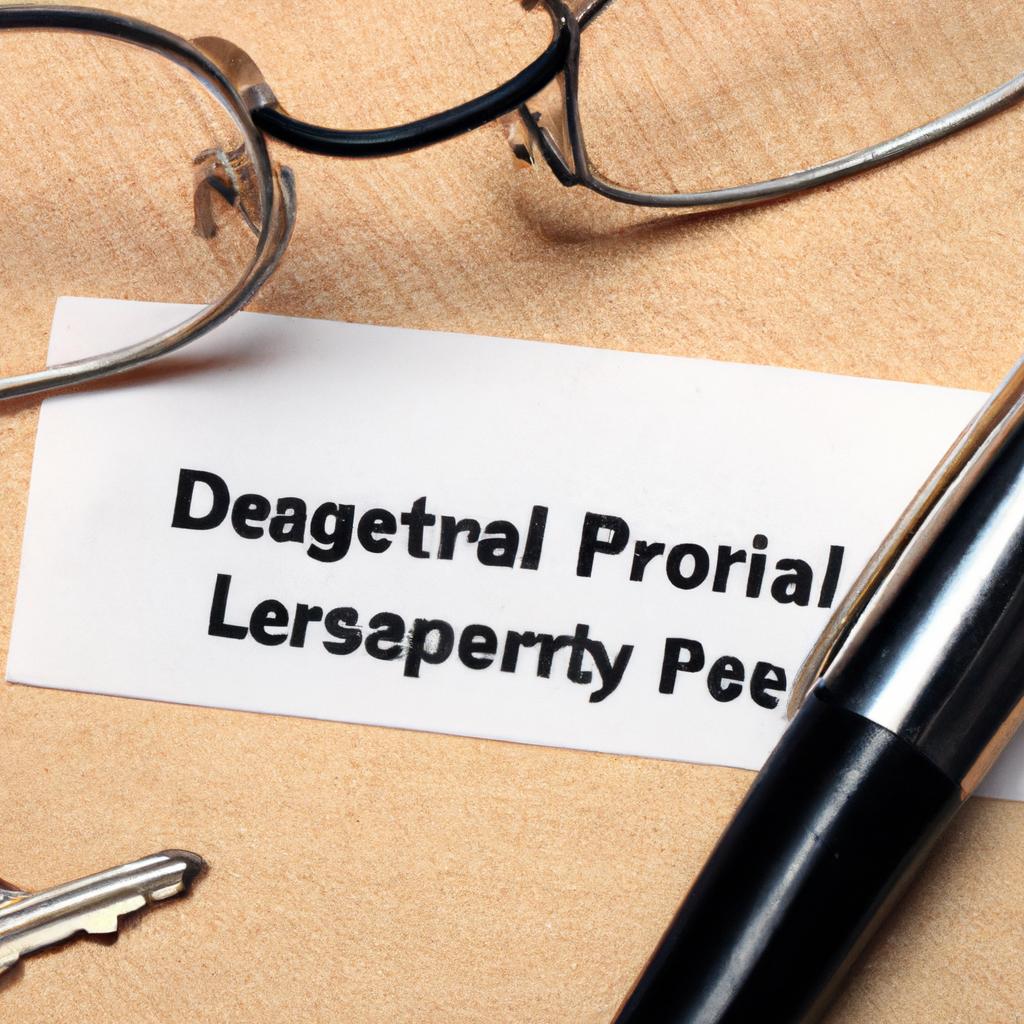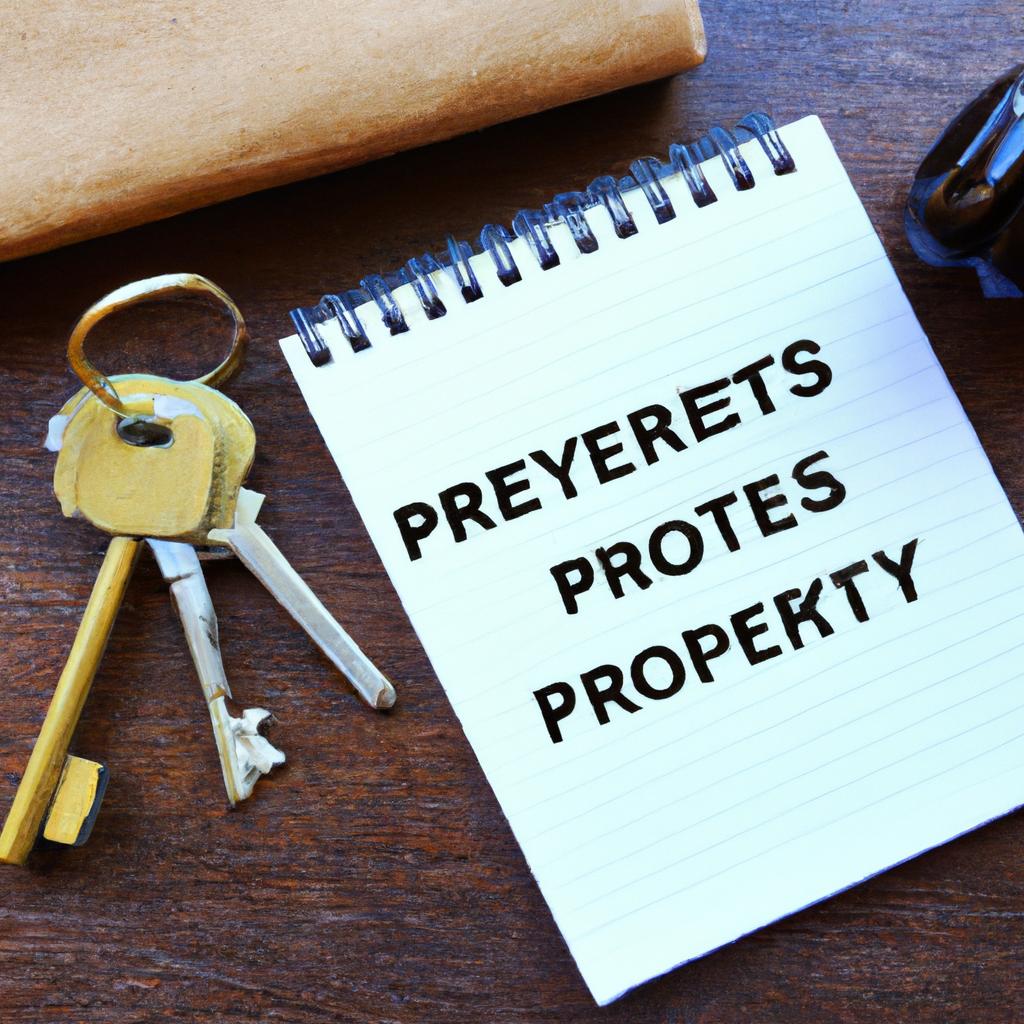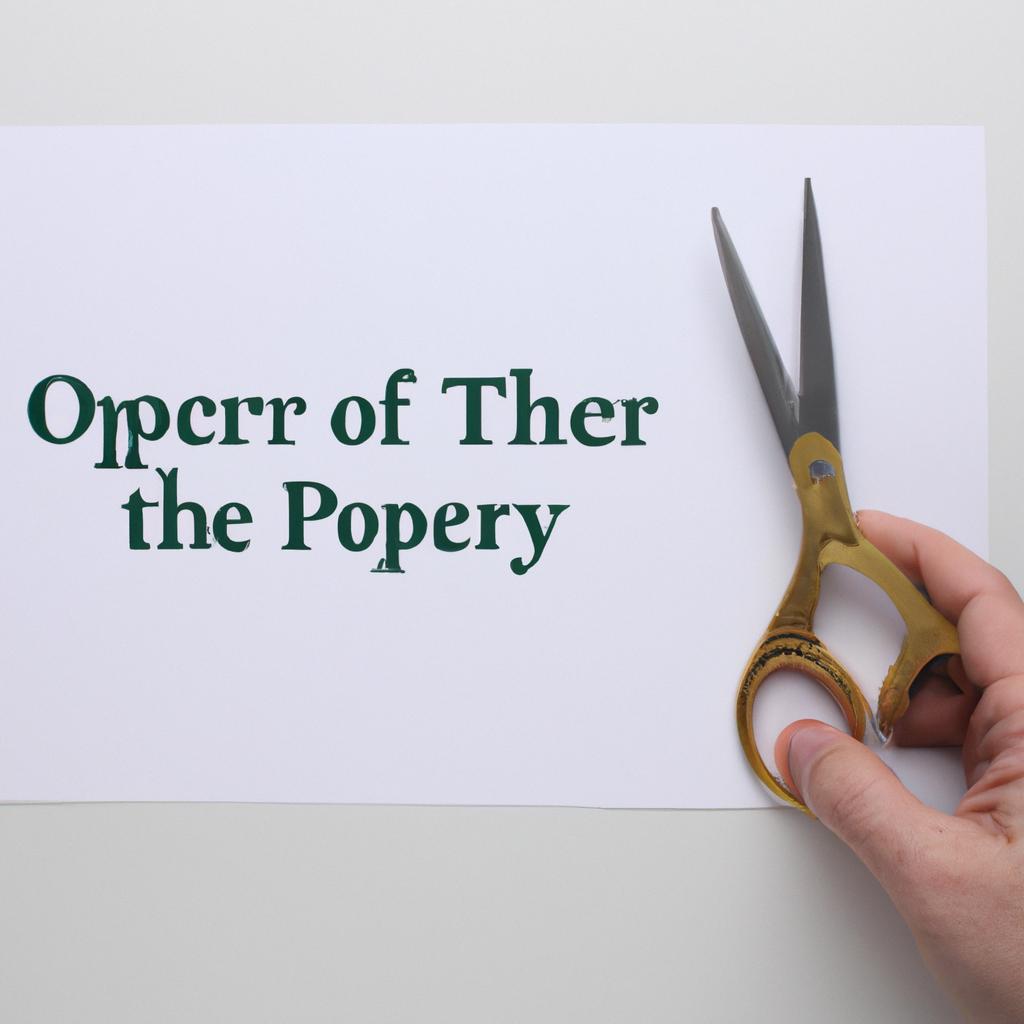As seasoned legal professionals at Morgan Legal Group, situated in the bustling metropolis of New York City, we understand the arduous process of acquiring a property deed. In this comprehensive guide, we will delve into the intricate steps and legal nuances involved in obtaining this vital document. Whether you are a first-time homebuyer or a seasoned real estate investor, our expertise in estate planning, probate, elder law, Wills, and trusts will provide you with the necessary knowledge to navigate through the complexities of property ownership. Join us as we demystify the process of securing a property deed and empower you with the tools to secure your investment.
Understanding the Importance of a Property Deed
When it comes to owning a property, one of the most important documents you will need is a property deed. This legal document serves as proof of ownership and outlines the details of the property’s transfer from one party to another. is crucial for ensuring that your ownership rights are protected and legally recognized.
Obtaining a property deed involves a series of steps that must be followed carefully to ensure that the transfer of ownership is legally binding. To get a property deed, you will need to:
- Research the property’s history and ownership records
- Prepare a deed transfer document
- Have the deed signed and notarized by all parties involved
- Record the deed with the county clerk’s office

Navigating the Legal Process of Obtaining a Property Deed
When , it is important to follow the necessary steps to ensure a smooth and successful transaction. First and foremost, it is crucial to conduct a title search to verify the ownership of the property and uncover any potential issues or liens. This step is essential in establishing a clear title and avoiding any complications down the road.
Next, it is important to prepare the necessary legal documents, including a deed transfer document, which will legally transfer the ownership of the property from the seller to the buyer. It is advisable to seek the assistance of a qualified real estate attorney to draft and review these documents to ensure they are legally binding and accurately reflect the terms of the transaction. Lastly, once all documents are in order, the property deed must be recorded with the appropriate government agency to officially transfer the title.

Key Steps to Securing Your Property Deed with Legal Expertise
When it comes to securing your property deed with legal expertise, there are key steps that must be followed to ensure that your assets are protected. One crucial step is to consult with a knowledgeable attorney who specializes in real estate law. A skilled lawyer will be able to guide you through the process of transferring property ownership and updating your deed accordingly.
<p>Another important step is to conduct a title search to verify the current ownership status of your property. This will help to identify any potential issues or discrepancies that may need to be addressed before transferring the deed. Additionally, it is essential to file the necessary paperwork with the appropriate government agencies to officially transfer the deed from the seller to the buyer.</p>

Ensuring Property Ownership Rights Through Proper Deed Acquisition
When it comes to , there are essential steps that every property owner must follow. First and foremost, it is crucial to understand the different types of property deeds available, such as warranty deeds, quitclaim deeds, and special warranty deeds. Each type of deed offers varying levels of protection and rights to the property owner.
Additionally, it is vital to conduct a thorough title search to ensure that there are no existing liens or encumbrances on the property. This can help prevent any future disputes or legal issues regarding the property ownership. Furthermore, working with a qualified real estate attorney can provide valuable guidance and assistance throughout the deed acquisition process, ensuring that all legal requirements are met and property rights are protected.
Q&A
Q: What exactly is a property deed?
A: A property deed is a legal document that proves ownership of a piece of real estate.
Q: Why is it important to have a property deed?
A: Having a property deed is essential for proving ownership of a property and protects against any potential disputes or legal issues.
Q: How can I obtain a property deed?
A: Typically, property deeds are obtained through the county clerk’s office where the property is located. You may need to pay a fee and provide identifying information to access the deed.
Q: What information can I find on a property deed?
A: A property deed typically includes information about the property, the current owner, and any restrictions or easements that may affect the property.
Q: Can I access property deeds online?
A: Some counties offer online access to property deeds, while others may require you to request a physical copy in person or by mail.
Q: Are there any common mistakes to avoid when obtaining a property deed?
A: It’s important to ensure that all information on the property deed is accurate and up-to-date. Double-check the legal description of the property and the names of the current owner before finalizing the deed transfer.
The Way Forward
Whether you’re a first-time homeowner or seasoned real estate investor, obtaining a property deed is a crucial step in securing your ownership rights. By following the steps outlined in this article, you can navigate the process with confidence and ensure that your property is legally and rightfully yours. Remember, a property deed is not just a piece of paper – it represents your stake in the place you call home. So, go forth and claim your piece of the real estate pie!
 If you are a homeowner or looking to purchase a property, obtaining a property deed is an essential step in the process. A property deed is a legal document that proves ownership of a property and includes important information such as the property’s legal description, boundaries, and any encumbrances or restrictions. Whether you have recently purchased a property or are in the process of doing so, understanding how to get a property deed is crucial. In this article, we will discuss the steps you need to follow to obtain a property deed, its benefits, and some practical tips to keep in mind.
If you are a homeowner or looking to purchase a property, obtaining a property deed is an essential step in the process. A property deed is a legal document that proves ownership of a property and includes important information such as the property’s legal description, boundaries, and any encumbrances or restrictions. Whether you have recently purchased a property or are in the process of doing so, understanding how to get a property deed is crucial. In this article, we will discuss the steps you need to follow to obtain a property deed, its benefits, and some practical tips to keep in mind.
Step 1: Identify the Type of Deed
The first step in getting a property deed is to identify the type of deed that is appropriate for your situation. There are different types of property deeds, including a general warranty deed, special warranty deed, quitclaim deed, and grant deed. Each type of deed has its own purpose and offers varying levels of protection for the buyer. For example, a general warranty deed offers the most protection to the buyer as it guarantees that the seller has the legal right to sell the property and that there are no liens or encumbrances against it. On the other hand, a quitclaim deed offers the least protection and simply transfers any interest the seller may have in the property to the buyer. Depending on the state you are in, certain types of property deeds may be mandatory, so it is crucial to consult with a real estate attorney to determine the appropriate deed for your situation.
Step 2: Gather Necessary Information
To get a property deed, you will need to gather some important information first. This includes the property’s legal description, which can typically be found on the property’s title or deed, as well as the names and addresses of both the buyer and seller. You may also need to provide the property’s tax ID number and the purchase price if the deed is for a new property purchase.
Step 3: Draft the Deed
Once you have identified the type of deed and gathered all necessary information, it’s time to draft the deed. In most states, a licensed attorney must draft a property deed. This ensures that the deed meets all legal requirements and is properly recorded. However, in some states, you may be able to draft the deed yourself or use a fillable form provided by the county. It’s always best to consult with an attorney to ensure that the deed is correctly drafted and executed.
Step 4: Execute the Deed
After the deed is drafted, both parties need to sign it in front of a notary public for it to be valid. The notary public will then notarize the deed by attaching their seal and signature. It is crucial to have all parties sign the deed and have it notarized to ensure its legality and avoid any disputes in the future.
Step 5: Record the Deed
Recording the deed is the final step in the process of obtaining a property deed. This is typically done at the county clerk’s office or the recorder of deeds office in the county where the property is located. To record the deed, you will need to pay a fee, and the original document will be kept on file as a public record. It’s essential to record the deed as soon as possible to avoid any potential issues or disputes in the future.
The Benefits of Getting a Property Deed
There are several benefits of obtaining a property deed. The primary advantage is that it is legal proof of ownership and can help protect your rights as a homeowner. If there is ever a dispute regarding the property, the deed will serve as evidence of your ownership. Additionally, having a property deed can also assist you when it comes to future property transactions, such as selling the property or obtaining a mortgage. It will provide potential buyers or lenders with the necessary information about the property and its legal ownership.
Practical Tips for Obtaining a Property Deed
1. Consult with a real estate attorney: As mentioned earlier, having a legal professional assist you throughout the process of obtaining a property deed is crucial. They can ensure that all legal requirements are met, and the process goes smoothly.
2. Verify the deed before signing: It’s essential to carefully review the deed before signing it to ensure that all information, including the legal description and names, is correct.
3. Keep the original deed safe: The original deed is a vital legal document, so it’s necessary to keep it in a safe place, such as a fireproof safe, a safety deposit box, or with your attorney.
Conclusion
Obtaining a property deed is a significant step for property owners, as it not only proves legal ownership but also protects your rights and interests in the property. By following the steps outlined in this article and seeking professional assistance, you can ensure that the process of getting your property deed is smooth and hassle-free. Remember, it’s always best to consult with a real estate attorney if you have any doubts or questions.

